11 strange rules just found in Japan you may not know!
- 12 meals causing fever to social networks of postpartum women at Japanese hospital
- 37 certain simple etiquette you must know
- 16 strange things worth studying for the whole world are found only in Japan
Japan has long been known as an economic power with a developed education and people here are very hardworking, intelligent and polite. However, this sunrise country has many strange inventions, even oddly, for other countries in the world.
In daily life, Japanese people always have very strict and really strange rules. Please take a look at 11 strange rules that you just don't know in Japan !
11. Speak to people
 © jsk / pixabay © jemastock / depositphotos
© jsk / pixabay © jemastock / depositphotos
In Japan, it is not enough to just address people by calling a person's name. Japanese has a system of ' -san ' suffixes to express respect and solemnity when naming or referring to others:
- '-kun' : used to name or mention people with lower status than them, or anyone when calling names, referring to boys or teenagers, male friends. Usually use ' -kun ' which means ' you '.
- "-chan" - a light suffix, mainly used for children, family members, lovers and close friends.
- "-sama" - is a version of " -san " in a highly respectful form, primarily to refer to those with higher status or guests who respect themselves greatly. When used to refer to oneself, " -sama " expresses arrogance in an extreme ( or sarcasm of self-humility ).
- "-senpai" - to address your former colleague or classmate.
- "-kōhai" - as opposed to " -senpai ", only subordinates, "-kun " will be used instead.
- "-sensei" - for teachers, doctors, scientists, politicians and other authorities.
- "-shi" - used in formal document form and sometimes in formal speech, to refer to someone who is not familiar with the speaker.
10. When exchanging business cards
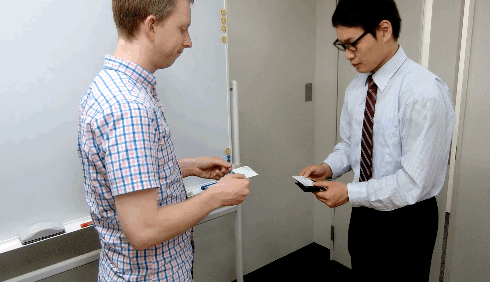 © useful-tips-japan
© useful-tips-japan
Japanese people always work with their own business cards. If you are a business person in Japan, when exchanging business cards for customers or talking to business partners, you will need to pay attention to rules such as:
- Make sure your card face is facing up .
- Put with both hands.
- If your job position is lower, your social status must be lower.
- When you receive a business card, you cannot get it right away, but it must be reviewed within a few seconds.
- Don't forget to bend slightly and they will also return your bow when receiving business cards .
- If you don't have a business card, it will be bad.
This is a far cry from having a business card but leaving it in your pocket when doing business.
9. In the elevator
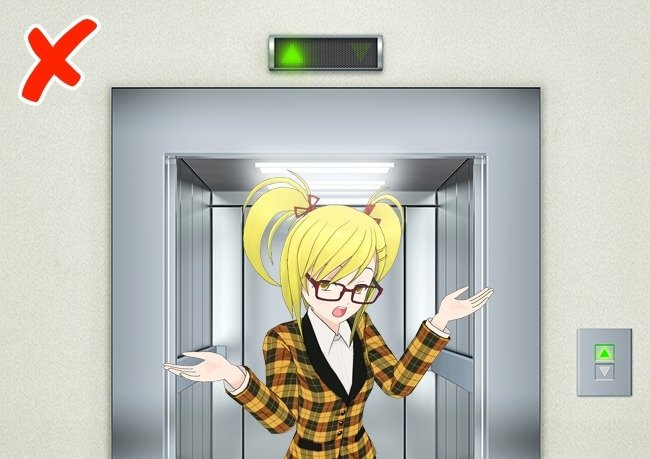 © gl0ck / depositphotos © jsks / pixabay
© gl0ck / depositphotos © jsks / pixabay
In Japan, there are unofficial rules but it is still followed by people as a habit. If you are the first person to enter the elevator, you will become the " captain " elevator and should stand near the control panel. You will have to press the close button until everyone enters the elevator, repeating each time the elevator stops. Moreover, you must also be the last to leave, so you need to do everything very quickly.
If you are a tourist who came to Japan and already know this rule, we recommend that you do not enter the elevator first!
8. On the subway
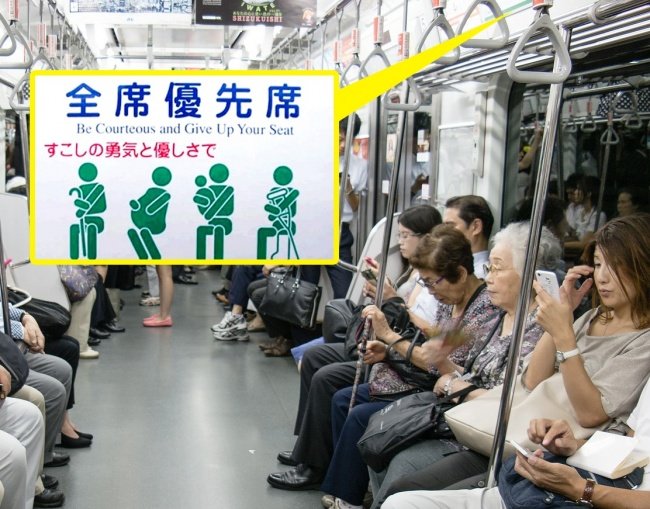 © moritzklassen / pixabay © blog.udn
© moritzklassen / pixabay © blog.udn
When on the subway, there are a number of rules that Japanese people need to do like: restricting talk ( on the phone too ), not interfering with other people's work and looking at others will be behavior polite.
Usually, in other countries, giving up seats to the elderly, children and people with disabilities is polite. However, in Japan, older people will always feel " uncomfortable " if someone wants to give them a seat, because they will stand when there are no empty seats. Moreover, there is always a priority compartment on the train for the elderly, pregnant women, children and people with disabilities, if they want, they can use this compartment.
7. Touch other people
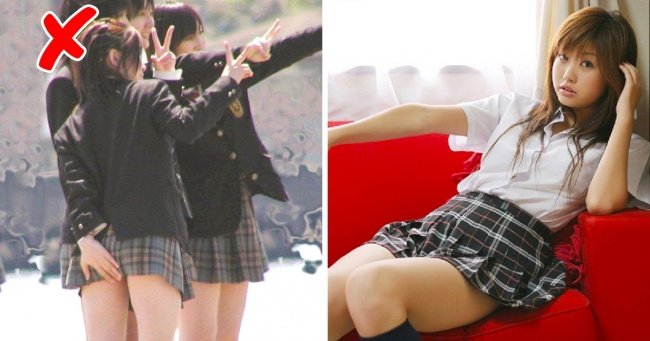
In Japan, when you stare at others it is considered rude, let alone touch them. This country is not large, so people in Japan respect each person's personal space. If you come to Japan, don't touch other people arbitrarily.
Kissing in public is also considered impolite in this country . Before 1945, it was also considered a violation of public order.
6. Drink alcohol
 © AlexNazaruk / depositphotos © twicopy
© AlexNazaruk / depositphotos © twicopy
Drinking has become a cultural feature of Japanese office workers, they rarely " escape " an invitation for a party, a drink from a boss or a colleague, which is a stressful and fun way to relax with friends. after stressful working hours. It is not difficult to see gentlemen sleeping overnight at a train station, a curb or fast food shops in a state of intoxication.
An exemplary morning clerk could hug her colleague in the karaoke bar that night and get drunk to the point of vomiting on her suit, this is perfectly normal. What is interesting is that when they are awake, they will treat it as never before.
5. Money
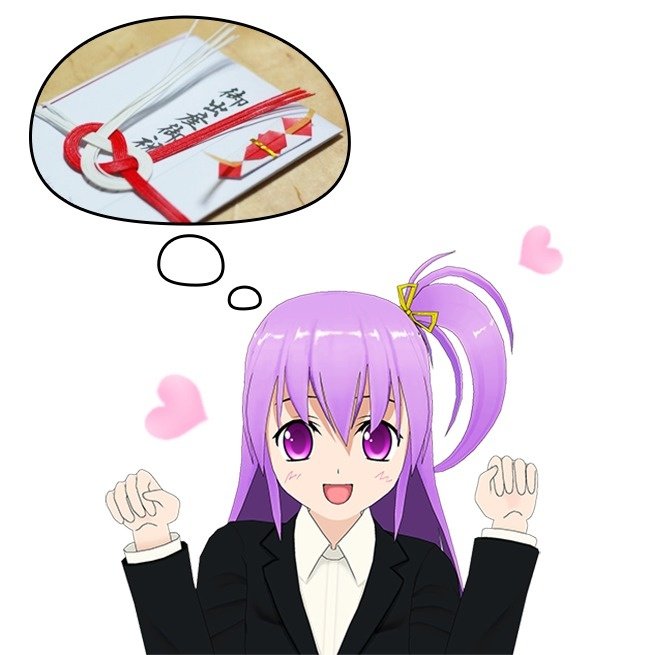 © melon-panda.livejournal
© melon-panda.livejournal
Japanese people have a strange attitude towards money: for some reason, they feel ashamed when exchanging money in public places . Therefore, traditional decorative cash envelopes are popular here. If you don't have such envelopes, you'll have to pack money in a piece of paper before handing it over to anyone.
Of course you do not need to do so at stores or supermarkets, but you still have to know this rule. You will have to prepare the money before the payment to avoid waiting for the person behind you and when you pay you do not give money directly to the cashier, but will put it in a tray available on the table. This will avoid physical collisions that make the cashier and the customer feel uncomfortable as well as receiving payments will be easier.
4. Rules when sitting
 © gwaar / flickr
© gwaar / flickr
Sit by folding your legs under your thigh called " seiza " and Japanese people often sit on the floor this way. They feel comfortable sitting in seiza style as if we were sitting on an armchair.
People in other countries will not be used to sitting there, feet may be paralyzed for a few minutes. If you are a tourist or an elderly person sitting next to the Japanese in their home, your legs can stretch, they will sympathize and no one will say anything. But it would be extremely inappropriate if a Japanese person sat like that.
3. Gifts
 © AlexNazaruk / depositphotos
© AlexNazaruk / depositphotos
In Japan there is a gift-giving culture, every year there are 2 special gift seasons: o-chugen ( in summer ) and o-seibo ( in winter ).
In many countries, after accepting gifts can immediately open those gifts in front of everyone, but in Japan it is a sign of greed and impatience. In addition, gift givers may feel ashamed of their humble gift and the recipient will be deemed to be unresponsive.
2. Cultural greetings
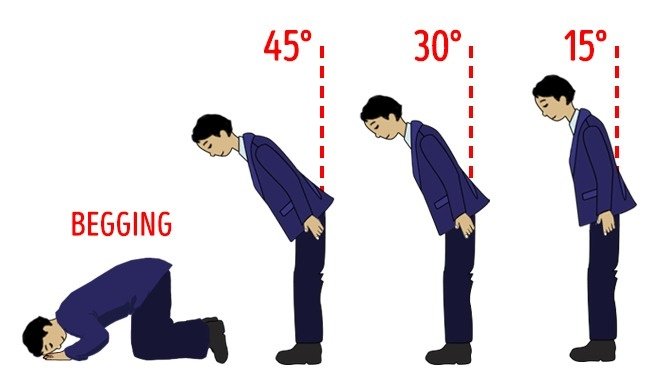 © AlinaOsadchenko / depositphotos © rijal // depositphotos
© AlinaOsadchenko / depositphotos © rijal // depositphotos
The art of bowing is very important in this country, children will have to learn from a young age. Bowing is used not only when meeting, but also showing gratitude, error, thanks . There are many different ways to bow in Japan: standing, sitting and other variations in the two sexes.
- Bow Eshaku (15 degrees): for people of the same age, class or position in society.
- Keirei polite bow (30 degrees): for older people, predecessors, bosses or people with high status in society.
- Respectful bow of Saikeirei (45 degrees): bow when you want to apologize, thank you sincerely or when bowing to god, Buddha, God, Emperor, national flag or to the births like grandparents, parents.
- Bowing " beg for your life " is probably only used if you have done something really terrible.
If you lower your bow, the more you show respect . This means that the more you offer, the more rank or age you have, the more you have to bow and keep that position longer than usual.
1. Thank customers
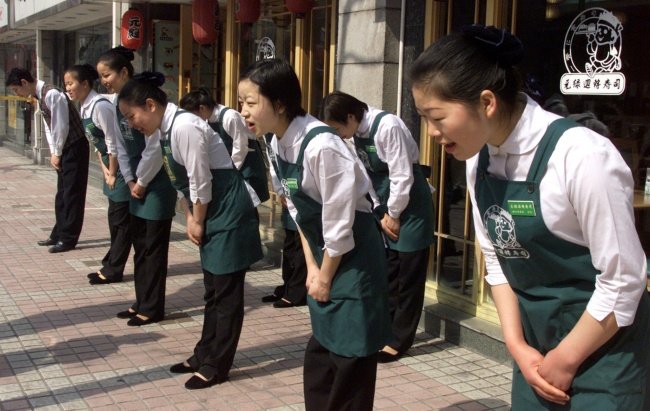 © Clara Cortes / reuters
© Clara Cortes / reuters
A long-standing rule in Japan is that after a guest leaves, one or all of the employees will follow to the door or elevator and continue to bow until they leave. Customers or business partners are treated as gods and treated with incredible respect in Japan.
It will be inconvenient if this happens in a shopping center or a rush hour store with a large number of visitors and not everyone can afford the time to meet or let the staff bow Thanks each one.
Besides, foreign customers who are not familiar with this way may feel shy. The new generation of Japanese people today thinks this is a redundant rule and they often ignore this ritual.
See also: 20+ images of the secret behind the lives of Japanese businessmen
Having fun!
You should read it
- ★ 23 rules in business that any professional employee needs to know
- ★ The 15 harsh rules in Japanese school just listening is enough to make you 'goosebumps'
- ★ 20+ images of the secret behind the lives of Japanese businessmen
- ★ Life only encapsulates in 10 things, understanding these things your life will definitely relax
- ★ 5 interesting things about the Japanese education system make the whole world jealous